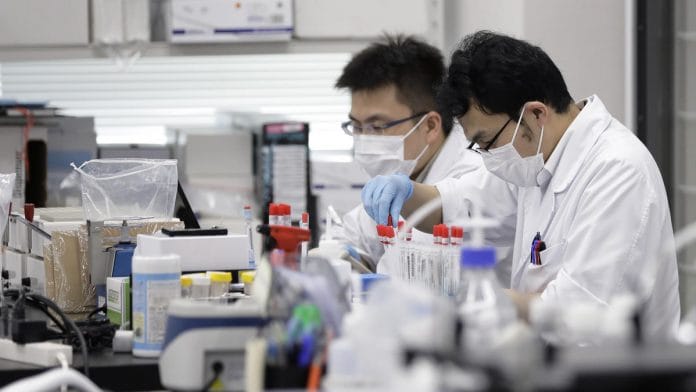Biologists recently revealed a new form of the gene-editing tool known as Crispr that allows researchers to make precise changes to almost any element of DNA, permanently altering cellular biochemistry. It could help treat tens of thousands of diseases linked to variations in a single gene and lead to the creation of better antibiotics.
The latest development, called prime editing, is more accurate than older Crispr methods, which sometimes alter genomic DNA in the wrong places. The new method will be a boon to the least contentious kind of gene editing — gene therapy — which introduces genetic changes only within the body’s somatic or nonreproductive cells. One such method is already in clinical trials to treat Huntington’s disease, in which a genetic mutation leads to production of an abnormal protein in brain cells.
As gene-editing technology races ahead, scientists are agonizing over ethical issues. How, for example, can they ensure that treatments don’t cause more problems than they fix? Some genetic variants that seem clearly beneficial — lowering the risk of heart disease, for example — could have other harmful effects we don’t yet know about. A far bigger concern is the prospect of editing germ-line cells, so that altered DNA gets passed on to future generations, forever changing our collective human genome.
Many things can go wrong in gene therapy, but bioethicists worry more about the possibilities of editing germ-line cells, sperm or eggs, as modified genes will then be passed on to future generations. Some benefits could be amazing: We might, for example, solve the problem of AIDS by making a rare mutation conferring innate resistance to HIV infection far more common in the human gene pool. Such potential, many biologists think, makes this kind of gene editing almost inevitable. One biologist recently argued that we should begin experimenting as quickly as possible, despite the risks.
Also read: GM babies are possible, but do we really want them?
We should be hypercautious and learn from what has happened with other technologies. Facebook seemed like a benign platform for connecting friends and family, but it has morphed unpredictably into an engine of extremism and a threat to democracy. In a similar way, bioethicists warn, the biggest risks from Crispr and other gene-editing techniques won’t be unfortunate physical side effects, but cultural risks of another kind entirely, as the technology could irreversibly alter our experience of being human.
The risks are staggering, and probably beyond our capacity even to imagine. Bioethicists consider a few in a new collection of essays, “Human Flourishing in an Age of Gene Editing.” As science advances, biologists may well learn how to use gene editing to improve traits like intelligence, beauty and physical endurance, even though these depend on many genes, not just one. This could forever change the relationship between parents and their children, who might become more like manufactured products, their character shaped entirely by parental choice, subject to pressures of fashion and marketing. The best such technology won’t be cheap, and it would likely increase the gap between haves and have-nots.
The biggest risks are simply ignored in the naive cost-benefit analyses of those pushing for experimentation. For example, one can imagine a threat to the generational continuity that holds humanity together as a community of individuals with shared experiences. As Bill McKibben notes in his recent book “Falter,” the power of gene-editing technology may well advance in an ever-accelerating fashion, much as computing technology has. If so, the power and precision of genetic design could improve much as today’s mobile phones do, the best technology becoming obsolete every few years. The joy of being a super-intelligent eldest child would turn to the nightmare of being positively dumb compared to a sibling just two years younger, who would in turn be considered feeble-minded by a still younger child.
This is the threat posed by technology that is capable of rapidly changing the human genome. For the entire history of mankind, the very slow pace of genetic evolution kept different generations more or less comparable. Language aside, anyone today could talk to Plato or a Chinese farmer in the fourth-century B.C. and share the experience of being similarly human. Crispr-like technologies used without caution could end all that, splintering our species apart by making parents and children, brothers and sisters, profoundly different.
Biologists are right to express grave concerns over the future of the technology. Gene editing may be useful for treating some special diseases. But if we really care about humanity flourishing, we should aim to create an environment for people with all kinds of genomes. That means investing in the usual public goods such as education, housing and public health. That sounds boring, and isn’t, the bioethicists note, “as sexy or profitable” as the newest DNA-altering technology, but it might have better consequences for everyone.-Bloomberg
Also read: The difference between Crispr babies and ‘Bubble Boy’






